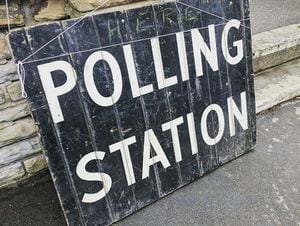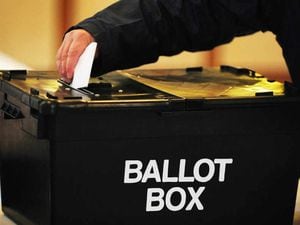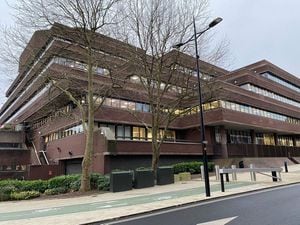Telford council trains staff to handle 'difficult conversations' at polls ahead of voter ID rules
Telford & Wrekin Council has put extra measures in place to manage frustrations over ID at the polls.

Extra training, staff and security measures have been put in place following the introduction of a new law which requires people to bring photo identification with them to vote.
In the May elections, voters will need to show photo ID to get their ballot paper in polling stations. From October these requirements will also apply to future general elections.
Telford & Wrekin Council have shared the extra steps they've put in place to inform residents of the change of law and handle the 'difficult conversations' that may arise as a result.
A spokesperson from Telford & Wrekin Council said: "We recognise that this will be the first elections where voter ID is required.
"We have been very proactive in our approach to the new rules which requires voters to show photo ID when voting on 4 May."
As well as writing to households, running social media campaigns and displaying information around the borough, the authority has been providing training and extra staff for safety on polling day.
The spokesperson added: "To ensure that all polling stations operate in a safe manner, with the ability to proactively engage with local residents who may not have their ID, we have: recruited additional staff, made arrangements to have more support staff available throughout the day across the borough, briefed enforcement officers on voter ID, ensured staff are suitably trained on voter ID and the impact on electors, and arranged training to staff on managing difficult conversations."
The council has also confirmed that police will be patrolling and visiting polling stations on election day.
Acceptable forms of ID include passports, driving licences and older or disabled persons' bus passes. Out-of-date ID can also be used if the user is still easily identifiable.
It is estimated that more than two million UK voters could lack the necessary ID required, according to government analysis of the Bill when it was first introduced.
While the Government said the new law will "protect the integrity of the ballot box", opponents have criticised the move as one that will make it harder for people to vote.
North Shropshire MP Helen Morgan said: "We have warned that this is using a sledgehammer to crack a nut, at an exorbitant cost to the taxpayer, and that it is a thinly veiled attempt to make it far more difficult for people to vote."
According to the Electoral Commission, in the past five years, there has been no evidence of large-scale electoral fraud.
Of the 1,386 cases of alleged electoral fraud reported to police between 2018 and 2022, nine led to convictions and the police issued six cautions.
Supporters of the law argue that impersonation and multiple voting by individuals at the polling station is difficult to prove.





